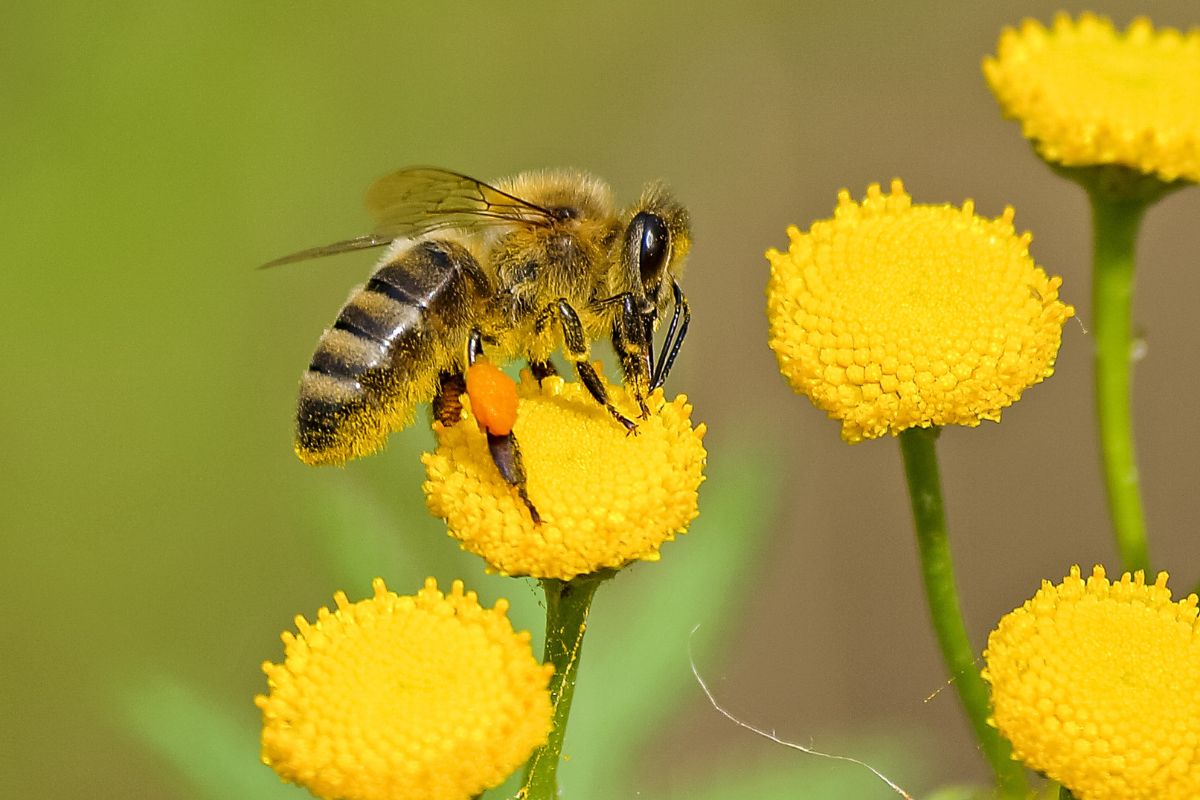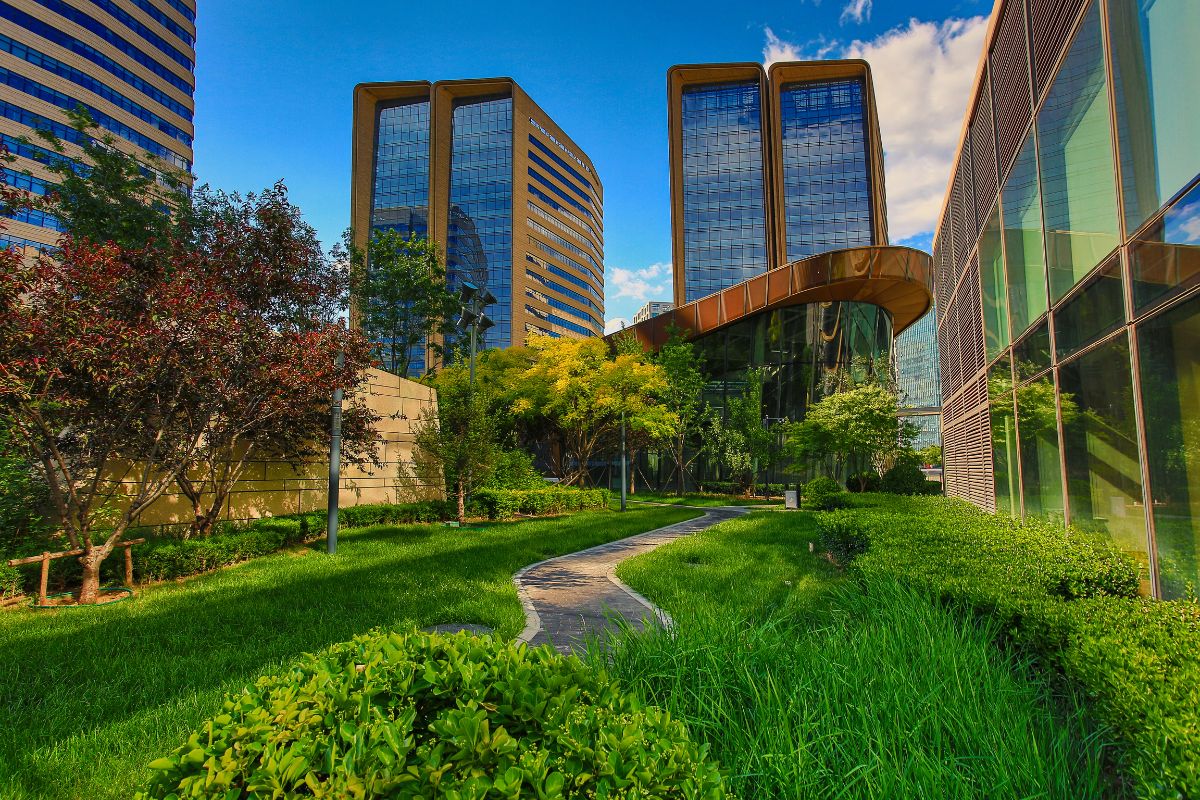Did you know that urban beekeeping is more than just trendy? It’s buzzing with benefits that go beyond a sweet jar of honey. In a world where cities often feel disconnected from nature, beekeeping brings a little bit of the wild into the urban jungle.
You might think it’s just for enthusiasts with a green thumb and a passion for pollinators, but the perks of keeping bees in the city are surprising— and they might just inspire you to get started.
In this blog post, we'll dive into five eye-opening benefits of urban beekeeping that you need to know. Because beekeeping isn't just a hobby—it's a lifestyle that cultivates harmony between city dwellers and the natural world.
So, grab that beekeeping suit, and let's explore how these little wonders can transform not just your backyard, but also your entire city. Get ready to discover the sweet side of urban life through the lens of beekeeping!
1. Boosting Local Biodiversity

Urban beekeeping plays a significant role in boosting local biodiversity. Cities are often concrete jungles with limited green space, making it challenging for wildlife to thrive. But when you introduce beekeeping into the mix, you create a sanctuary for bees and other pollinators, reviving the balance of local ecosystems.
Bees are hard workers, and they don’t just benefit flowering plants; they also support a variety of species. By pollinating local flora, bees help support various wildlife, from birds to butterflies, that rely on these plants for food and habitat. This leads to healthier urban ecosystems, allowing nature to flourish even amidst skyscrapers and busy streets.
Plus, having a diversity of plants improves the quality of the air we breathe and creates a more appealing environment. Imagine walking down the streets of your city, greeted by blooming flowers and vibrant greenery, all thanks to the tiny but mighty bees buzzing around. That's the magic of urban beekeeping!
2. Pollination and Increased Crop Yields
Think about those juicy tomatoes, colorful peppers, and sweet strawberries that make up your favorite garden salad. Did you know that bees are responsible for pollinating about one-third of the food we consume? When you keep bees in urban areas, you’re not just helping them; you’re boosting the pollination process, leading to increased crop yields.
Urban gardens and farms thrive with the help of bees. These industrious insects are nature’s little agricultural assistants, buzzing from flower to flower and ensuring that plants get fertilized. The result? Bigger, tastier, and more abundant produce! This means you can enjoy fresh, home-grown veggies that are far superior to those store-bought options—talk about a win-win situation!
Additionally, more pollinators in the city can attract other beneficial insects, promoting an even healthier and more productive gardening ecosystem. So, if you’ve ever thought about planting an urban garden, imagine how much better it could flourish with a few thousand bees working their magic alongside you.
One Pass That Does It All. Get Out And Play!

3. Enhanced Urban Green Spaces

Urban beekeeping doesn’t just benefit the bees; it enhances the overall quality of urban green spaces as well. When more people take up beekeeping, they often start to care for their outdoor environments more. This newfound appreciation can lead to the beautification of parks, gardens, and rooftops, creating vibrant neighborhoods that residents love.
Imagine wandering through your local park filled with colorful flowers attracting bees, butterflies, and other pollinators. It’s a visual treat and a health boost. Green spaces provide essential habitats for numerous species, reduce urban heat islands, and improve air quality. And with bees contributing to plant growth, these spaces become havens for both humans and wildlife alike.
Moreover, beekeeping often encourages communities to plant more flora and become aware of environmental practices. This can lead to neighborhood initiatives focused on recycling, composting, and urban gardening, ultimately creating a culture of sustainability. Together, urban beekeepers are transforming barren spaces into lush havens full of life.
4. Educational Opportunities for the Community
Urban beekeeping brings valuable educational opportunities to the community. For many, bees may feel like a distant concept, but setting up hives in the middle of town can spark curiosity and foster learning. Local beekeeping initiatives often become community learning centers, teaching people about the importance of pollinators, ecosystems, and sustainable agriculture.
Workshops, classes, and hands-on experiences give residents hands-on knowledge, demystifying bees and breaking down misconceptions. Children can engage in interactive education about nature, sustainability, and science, often discovering a love for the environment that lasts a lifetime.
Moreover, as locals become more aware of ecosystems and the importance of pollinators, individuals can make informed choices about what they plant, consume, and support. This knowledge not only enriches community ties but also empowers residents to take action in their own yards, leading to more boss bees and healthier ecosystems.
5. Harvesting Your Own Honey and Other Bee Products
What could be sweeter than indulging in a jar of home-harvested honey? That’s right—urban beekeeping lets you collect your very own honey and enjoy the fruits of your labor! The satisfaction of producing your own honey is unparalleled. It's a delightful payoff for all the time and effort spent nurturing your bee colony.
But wait, there’s more! Bees don’t just produce honey; they also create a treasure trove of other products. You can harvest beeswax, which can be used for candles, lip balms, and natural skincare products. Then there’s propolis, a sticky resin that bees use to seal gaps in their hives, prized for its health benefits.
Harvesting from your own bees adds another layer of connection to nature and the land. You can incorporate your bee products into your favorite recipes, share with friends, or even sell at local farmers' markets. Your urban beekeeping journey becomes not just about bees but also about crafting a lifestyle rich with diverse and sustainable choices.
Conclusion
Urban beekeeping is a delightful blend of nature’s wonders and urban life. It’s a game-changer for local biodiversity, boosts crop yields, enhances green spaces, creates educational avenues, and provides you with delicious honey and its byproducts.
So, whether you live in a high-rise apartment or a cozy neighborhood, consider joining the ranks of urban beekeepers. Let’s reconnect with nature, improve our communities, and take part in this sweet revolution. With every buzz, we can make a positive impact and enjoy the beautiful gifts of the bees. The city can be alive with the sound of buzzing, laughter, and community engagement.


































.svg)
.jpg)
.jpg)
.jpg)